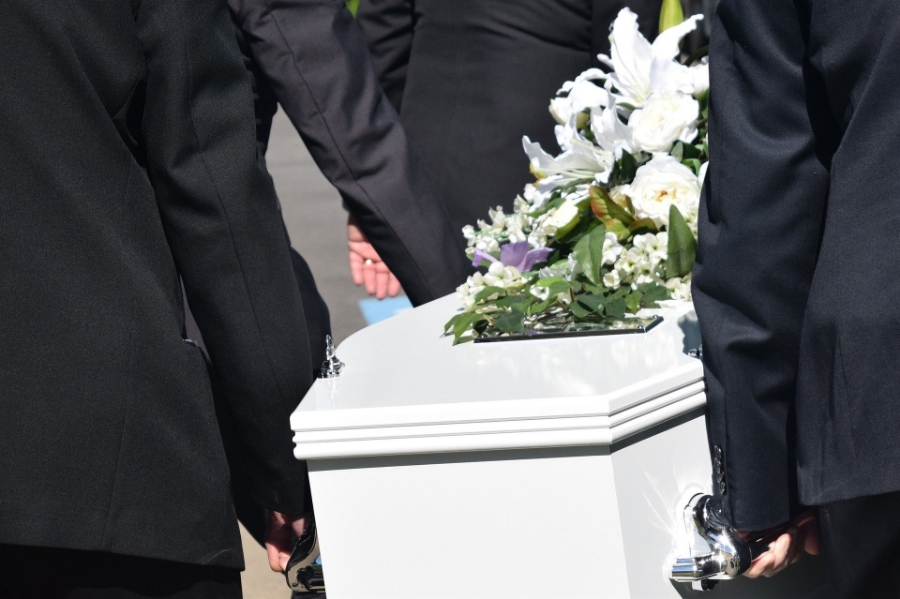
While it is undoubtedly an honor to be asked to deliver the eulogy at a funeral, most people get very anxious about the prospect. And understandably so.
It is a very emotional experience for most of us, especially since the deceased person is someone you knew very well - a relative or a dear friend. The sheer weight of grief and loss is difficult enough to deal with, but add to that the pressure of putting your thoughts into words for a roomful of grieving loved ones and it can be overwhelmingly stressful. However, the knowledge that your words can provide comfort to those same people can help get you through the ordeal.
Whether the setting is a church, funeral home, graveside, or someone's home, saying just the right words about the deceased is one of the most sensitive tasks that any speaker can be called upon to perform. When properly prepared and delivered, there is probably no other type of speech that can pack as much emotion, comfort and inspiration into just a few minutes. A good eulogy will be remembered and treasured for years.
Remember the reasons you are giving the speech.
Whatever you say about the deceased, it should be a positive and fitting tribute. When preparing the eulogy, you should strive to achieve the following three goals:
- It should provide comfort to the surviving loved ones of the deceased.
- It should recall the deceased's most endearing qualities and personality traits, and include happy and memorable shared experiences that your listeners can identify with.
- It should celebrate the deceased's life.
Before you start writing your speech, make a list of the following items:
1. What was the cause of death?
Was it the result of a long illness, or of old age? In either case, the death was not unexpected. An unexpected death due to accident or sudden onset of an infectious disease, for example, is far more traumatic and should be handled more delicately and with due attention to the emotional impact that the deceased's sudden death has had on those left behind.
The eulogy you would give for someone who had lived a long, full and satisfying life would be quite different from that given for a child who dies of cancer or a teenager killed in a car accident, or for someone who commits suicide. All of these deaths leave the bereaved with a deep sense of loss, but the loss of a child is especially traumatic and often hard to accept, particularly for the parents.
Accidental death and suicide also leave the loved ones in shock, with feelings of bitterness, guilt and anger. It is your task to try to help them find support and comfort in each other and in their good memories of the deceased.
2. Who will be present at the service?
Find out if close friends and family members that you have never met will be present and decide whether they should be mentioned. The rule of thumb should be this: If that person played an important role in the deceased's life, they should also play a role in the eulogy unless they specifically ask that you do not mention them. Some people do not want to be singled out, and the wishes of family and friends should always be taken into account.
3. Were there sensitive portions of the deceased's life that should be avoided?
Remember that you are here to pay tribute to the deceased's memory, and that there may be certain aspects of his/her life and the circumstances of his/her death that should not be mentioned (suicide, for instance). Make yourself aware of any disputes or estrangements between the deceased and ex-spouses/partners or other family members, and avoid these sensitive subjects.
4. Concentrate on the positives.
Emphasize the deceased's best qualities, those positive aspects of his/her personality that made the deceased a pleasure to know. For example: Did he have an infectious laugh? Was she a volunteer with community organizations? Was he a kind-hearted person who gave generously? Did she love animals?
5. What were the high points of the deceased's life?
Mention the high points, triumphs and successes of the deceased's life - whether career-related, family-related, educational or sports-related achievements, any special honors or abilities that set the deceased apart from the crowd.
6. Use your own memories.
If you have a favorite memory or anecdote about the deceased, use it. Make the eulogy a personal tribute that can be warmly shared with others who loved this person - include references to favourite travel spots, music, movies, activities and other things that were important to the deceased.
7. Talk about the things that made their life worth living.
Emphasize the fullness of the deceased's life, no matter their age. A young child enjoys the richness of life no less than a centenarian.
8. Reflect the character of the person you are eulogizing.
Use the deceased's personality and lifestyle as your guide to the tone of the speech. If the deceased wanted his/her loved ones to hold a wake and get together to reminisce about their good times together with the deceased, it's safe to assume that he/she would not want everyone sitting around crying and moaning, but would instead enjoy an upbeat celebration of the fullness of life.
On the other hand, if the deceased was devoutly religious, the eulogy should reflect that. Keep it respectful, and include references to Biblical passages about life after death.
Image by Carolyn Booth from Pixabay

